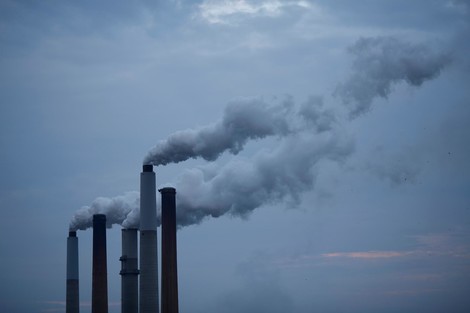Your podcast discovery platform
Curious minds select the most fascinating podcasts from around the world. Discover hand-piqd audio recommendations on your favorite topics.

piqer for: Climate and Environment Global finds
Andrea is a writer and researcher based out of Chicago. Andrea has a Bachelor's degree in environmental science from The Ohio State University and a Master's in Environmental Planning and Management at National Taiwan University, where she specialized in climate adaptation and urbanization. She writes for TaiwaneseAmerican.org, and sends out a biweekly newsletter which includes articles on politics, environment, identity, and intersections of race, class, and gender (http://eepurl.com/bPv-F5).
US Conservatives Unveil Plan To Fight Climate Change
Despite all the rhetoric about the "hoax" of climate change, “increasing numbers of Americans – including Trump voters – see the value of solving climate change. Just 28 percent of Trump voters think that the US should back away from the Paris Agreement. More than six in ten of Trump voters support taxing or regulating the pollution that causes global warming.” Perhaps the warmest decade on record has caused some people to reconsider their positions on the matter. In response, a coalition of Republican statesmen has proposed a plan for reducing carbon emissions: a carbon tax.
The group, called the Climate Leadership Council, “calls for a $40 tax on each metric ton of carbon dioxide emissions, with the tax steadily increasing on an annual basis. All proceeds – an estimated $200 to $300 billion per year – would be distributed back to American citizens in the form of dividend checks. Carbon taxes on foreign imports and rebates for US exports would then keep US-made goods competitive, the authors claim.” It would also require reducing EPA authority on carbon, as well as removing the targeted decrease in coal power plants. A carbon tax has long been in discussion, but has never been politically feasible, especially with conservatives. Perhaps it still isn’t.
Despite praise from various environmental groups and great hopes of bipartisanship, the plan faces opposition from members of both the Democratic and Republican parties. The Trump administration seems unlikely to add any kind of taxes, let alone one that would accept climate change and target fossil fuels. But, it is encouraging to see some Republicans putting forth some version of a climate solution.
Stay up to date – with a newsletter from your channel on Climate and Environment.
